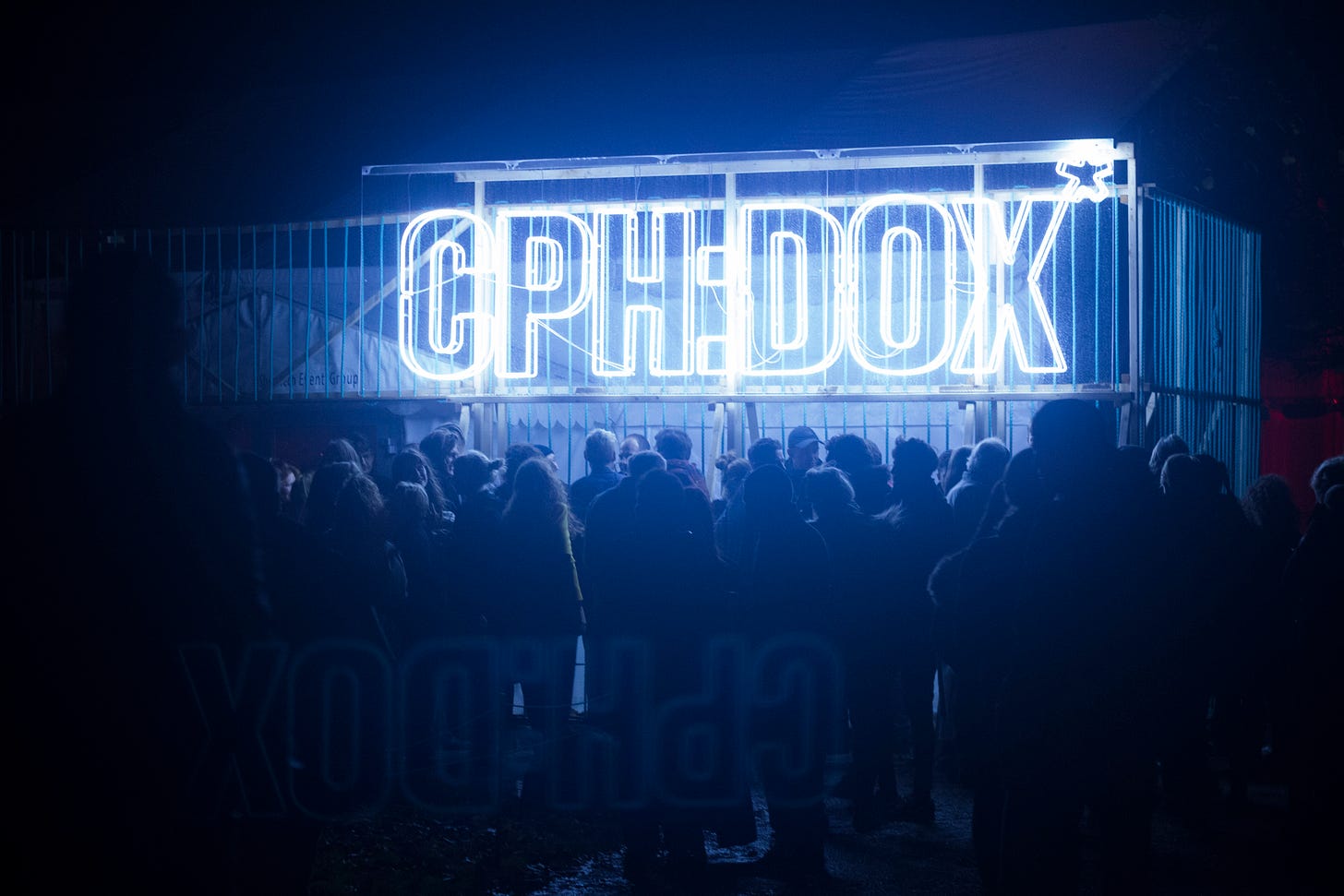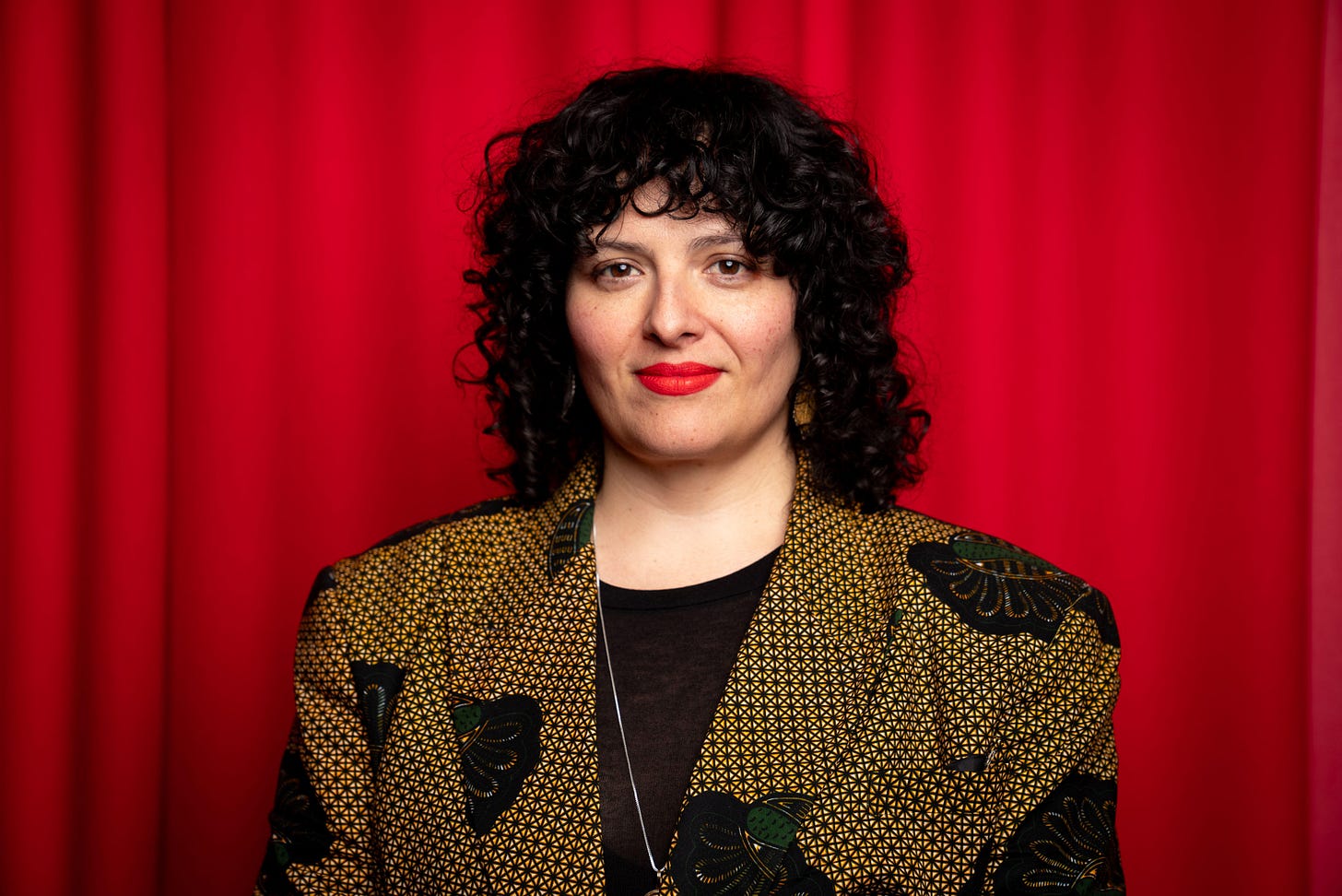Inside the CPH:DOX Forum
Industry head Mara Gourd-Mercado on seeking new sources for doc funding
CPH:DOX began yesterday in Copenhagen and continues through the end of the month with a host of industry-focused events including its SUMMIT, FORUM and CONFERENCE, which begins on Monday.
In the midst of a new documentary climate, I spoke to Head of Industry & Training, Mara Gourd-Mercado about the trends she’s observing in Europe and how the institute is adapting to these in order to embrace a more globally connected and sustainable doc community. Mara discusses the state of financing and distribution and how CPH:DOX is aligning their slate of projects and invitees to create fruitful collaborations. We also talk past success stories and the new generation of immersive storytelling.
Listen below to hear the full conversation or scroll to read the edited interview.
Bella: Describe your background and how you came to specialize in overseeing doc industry initiatives?
Mara: I had a former life as a film publicist and did a bit of everything – fiction, documentary, music, festivals. Then I began working for RIDM, the Montreal International Documentary Film Festival. I was there for six years, as Executive Director. That's where I really got to know not only the documentary community, but also the documentary industry. Overseeing an industry event was part of my job as Executive Director at RIDM. I also worked closely with Selin Murat – now Executive Director of the IDFA Bertha Fund – who was Head of Industry and Training at RIDM.
Making the move to Europe, working outside and Canada and being involved in an industry event was something that I wanted to try for a long time.
Bella: What changes have you witnessed in the industry and how have you adapted?
Mara: I've been at CPH:DOX since 2023, so this is going to be my second edition. The lack of funding in documentary – and this is pretty much worldwide – has always existed. One thing that strikes me now is the very little funding available for development. The structure used to be that broadcasters came on board earlier in order to finance that development while you were producing your documentary.
Nowadays, a lot of the funding has moved away from development; broadcasters, platforms and even sales agents want to see the rough cut before coming in. So how can a filmmaker get to that rough cut if you don't have any support beforehand? This is a big shift. We've tried to adapt by diversifying the sources or the representatives that we invite as financiers. In the past it used to be very traditional broadcasters, film funds, private funds and so on.
Today we have private investors, or production houses that also invest in films. We have many different models and industry representatives coming in that are not traditional. This year for example, WeTransfer has a new branch that finances film and they're coming to CPH:DOX. More and more we're going to have to ask ourselves who actually puts money into documentary and bring those people to the table along with the more traditional financiers, who remain important.
One lesson that we can learn from what we see happening in the US is that when you have a huge shift in government and in value systems, you see a big part of the money go away. A system that relies solely on private investors is as fragile as system that relies mainly, or solely on, governmental or grant money.
It’s also important for us to look at what type of projects we are bringing into these pitches. Do they paint a broad portrait of what documentary is at this moment in time to present to these different financiers? I think that what makes the Forum work here at CPH:DOX is that we tailor the selection to the people that we have in the room.
However, we place an element of surprise in the selection, things that we feel might be slightly left field but of interest to certain financiers. It’s a mix of what can really fit well as slate but also what is unexpected enough to peak curiosity.
Keep reading with a 7-day free trial
Subscribe to Doc Voices to keep reading this post and get 7 days of free access to the full post archives.





